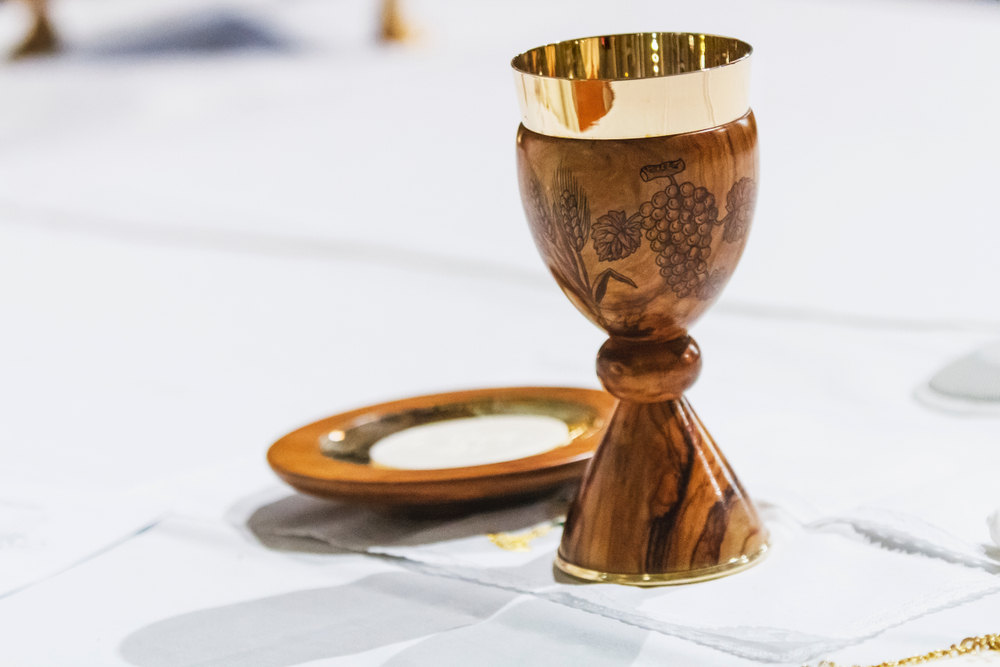“The faithful who are ill are deprived of their rightful and accustomed place in the Eucharistic community. In bringing communion to them the minister of communion represents Christ and manifests faith and charity on behalf of the whole community toward those who cannot be present at the Eucharist. For the sick the reception of communion is not only a privilege but also a sign of support and concern shown by the Christian community for its members who are ill … The obligation to visit and comfort those who cannot take part in the Eucharistic assembly may be clearly demonstrated by taking communion to them from the community’s Eucharistic celebrations. This symbol of unity between the community and its sick members has the deepest significance on the Lord’s Day, the special day of Eucharistic assembly” (Pastoral Care of the Sick, chapter three Communion of the Sick, No. 73).
When an Extraordinary Minister of Holy Communion (EMHC) is called forth, delegated and commissioned by her/his parish to share communion with those who are sick and homebound, that minister becomes an extension of the community gathered at Sunday or daily Mass.
In a sense, the EMHC stretches the celebration of the Eucharist into the home of the sick person. That ritual sharing of communion is a part of the ritual sharing of the whole assembly gathered for Mass, and the EMHC is a liturgical minister, a ritual prayer leader. As a prayer leader, the EMHC follows a set pattern of prayer laid out in the ritual book called Pastoral Care of the Sick.
Sharing communion with those who are sick is a designated ministry in the church. Parishioners are invited by the pastor of the parish to serve in this ministry.
Generally, the EMHC to the Sick is invited to the altar area after the sharing of communion at Mass, and sent forth by the community directly from Mass to visit those who are sick.
The consecrated host is carried in the appropriate vessel called a pyx (a small metal container with a clasp), and is best carried around the neck in a pocket purse on a string called a burser. Once dismissed from Mass, the EMHC goes directly to their visit.
The ritual prayer for sharing communion with those who are sick or homebound, in the hospital or in a residential institution, includes the same ritual elements of our prayer at Mass: Sign of the cross, song, scriptural greeting, scripture reading, intercessions, Lord’s Prayer, sharing in holy communion, silence, spoken prayer after communion, and a blessing.
The EMHC can shorten the ritual depending on the person’s physical or emotional state at the time of the visit. If the individual’s condition is grave, the ritual might just include a sign of the cross, silence, brief scripture reading, the Lord’s Prayer and sharing in communion. Adapting the ritual will require the pastoral sensitivity of the EMHC.
When visiting a residential institution, it is best if the EMHC makes arrangements for all those wishing to participate in Holy Communion to be gathered into one large space for a sharing as one assembly, just as we do at Mass.
The names of those who ask to share in communion in their home, hospital or institution are carefully monitored by the parish office and the pastor. Each parish should regularly have bulletin notes and Sunday announcements inviting families with loved ones who are sick to call the parish office and make arrangements for an EMHC to visit.
The personal qualities of an effective EMHC to the Sick include a listening, gentle, unhurried spirit; a sense of mindfulness of the moment; a sensitivity and ease in the presence of human suffering; a giving, empathetic spirit. Ministerial qualities include a prayerful presence; a deep sense of Eucharistic living and commitment to the body of Christ. Practical qualities should include reliability and punctuality.
Eucharistic Ministry to the Sick is not just a giving and receiving of the consecrated host. It is a ministry of sharing in communion as the body of Christ.
We who are the church become the body of Christ. We become what we receive. This sharing in the body of Christ begins with the consecrated elements, and grows within the community gathered. The EMHC to the Sick ministers as the body of Christ to the body of Christ.
“Be what you see. Receive what you are.” (St. Augustine)

